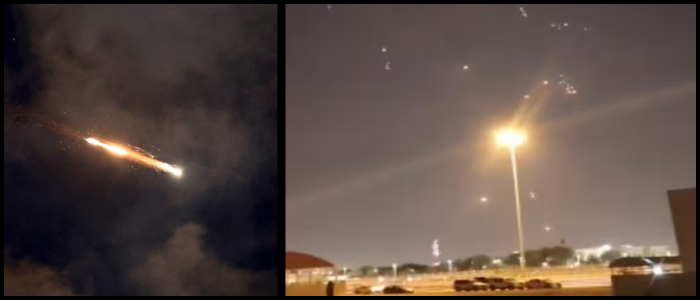The strike came after the United States bombed three Iranian nuclear facilities on Saturday. The target of Iran's retaliatory move was Al-Udeid, the home of the U.S. and regional air operations headquarters and some British personnel. There were conflicting reports of the number of missiles launched — Iran said six, the United States said 14, and Qatar said it counted 19, all of which were intercepted. There were no casualties or injuries.
Before the strike, both the U.S. and U.K. had warned Qatari citizens to seek cover. The country is home to some 8,000 U.S. citizens and several thousand Britons.
Developments in Reaction and Ceasefire
President Donald Trump said the missile attack was "very weak" and "expected." He thanked Iran for warning Baku in advance, which he said had averted loss of life and damage. "They've had their fun," he said, noting that there was still an opportunity for peace. He made clear Tuesday that there was a truce in place between Iran and his country.
Despite Trump's remarks, Qatar's foreign ministry said the missile attack was a "flagrant violation" of its sovereignty. It also highlighted that Qatar had alerted of the risks of military escalation in the region from the outset. Iran's supreme leader, Ayatollah Ali Khamenei, said that Iran had not injured anyone and would not accept insult to its rights, continuing Iran's defiant posture.
Iran would later say it would stop its attacks only if Israel stopped its own. Meanwhile, Israel issued a stark warning, saying it would respond strongly to any violation of the ceasefire deal. Moments before the cease-fire began, Iran boasted of firing one last round of missiles at Israel.
Warning Signs and Build-Up
There were numerous signs that an Iranian attack was imminent. A few hours ahead of the missile strike, Qatar closed its airspace briefly, while both the U.S. and UK issued warnings for their citizens to take cover. While these warnings were labelled as precautionary, intelligence apparently had "indications" of Iranian missile launcher movement.
Flight trackers showed planes diverting from Hamad International Airport, among the busiest in the world with some 140,000 passengers passing through it every day. Brief airspace closures were also reported in neighbouring Bahrain and Kuwait.
The missile launch came after a dramatic rise in tensions in the region. The U.S. Saturday attacked three Iranian nuclear facilities in a serious escalation that brought it in line with Israel's military offensive that began on 13 June. Israel had been striking Iranian targets on a near daily basis to thwart the construction of a nuclear weapon. Iran has always maintained it is pursuing a civilian nuclear programme.
The U.S. said its strikes took a serious toll on Iran's capabilities, though the full extent of the damage is not yet known. Skirmishes between Iran and Israel continued on Sunday and Monday before the cease-fire began.
World

Iran Fires Missiles at U.S. Base in Qatar

Iran fired missiles Monday morning at Al-Udeid Air Base in Qatar, the largest American military installation in the Middle East, in response to American airstrikes in Iranian nuclear sites over the weekend. The raids, which caused explosions and flashing to light up the sky over Doha, were confirmed both by Iranian state media and the military. Iran's elite Islamic Revolutionary Guard had said that would respond to any such attack on their sovereignty, adding that American bases in the region are "great targets".















